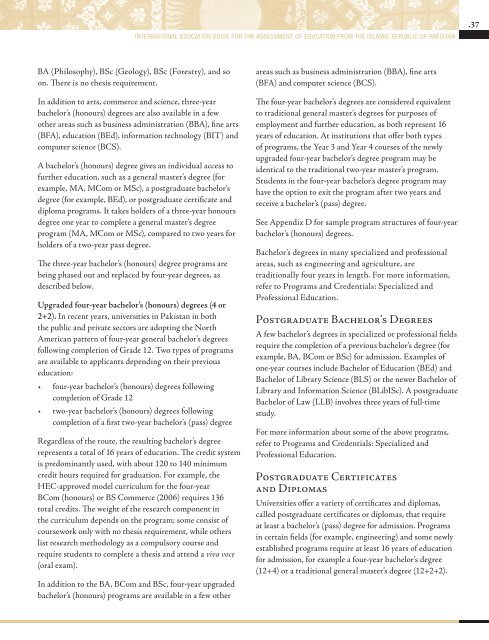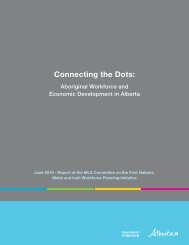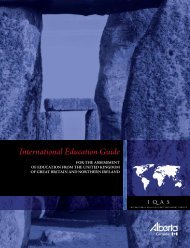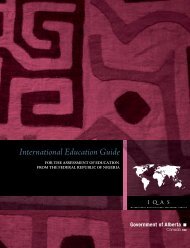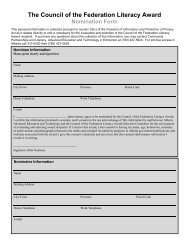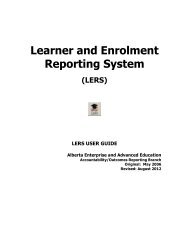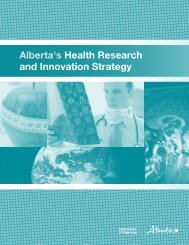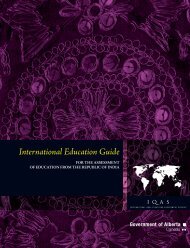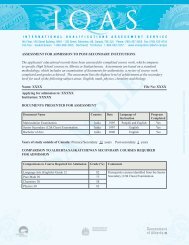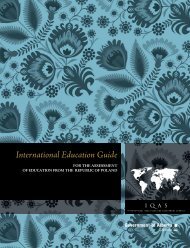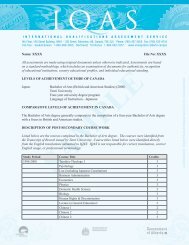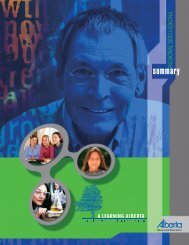International Education Guide - Enterprise and Advanced Education ...
International Education Guide - Enterprise and Advanced Education ...
International Education Guide - Enterprise and Advanced Education ...
You also want an ePaper? Increase the reach of your titles
YUMPU automatically turns print PDFs into web optimized ePapers that Google loves.
INTERNATIONAL EDUCATION GUIDE for the assessment of education from the Islamic Republic of Pakistan<br />
.37<br />
BA (Philosophy), BSc (Geology), BSc (Forestry), <strong>and</strong> so<br />
on. There is no thesis requirement.<br />
In addition to arts, commerce <strong>and</strong> science, three-year<br />
bachelor’s (honours) degrees are also available in a few<br />
other areas such as business administration (BBA), fine arts<br />
(BFA), education (BEd), information technology (BIT) <strong>and</strong><br />
computer science (BCS).<br />
A bachelor’s (honours) degree gives an individual access to<br />
further education, such as a general master’s degree (for<br />
example, MA, MCom or MSc), a postgraduate bachelor’s<br />
degree (for example, BEd), or postgraduate certificate <strong>and</strong><br />
diploma programs. It takes holders of a three-year honours<br />
degree one year to complete a general master’s degree<br />
program (MA, MCom or MSc), compared to two years for<br />
holders of a two-year pass degree.<br />
The three-year bachelor’s (honours) degree programs are<br />
being phased out <strong>and</strong> replaced by four-year degrees, as<br />
described below.<br />
Upgraded four-year bachelor’s (honours) degrees (4 or<br />
2+2). In recent years, universities in Pakistan in both<br />
the public <strong>and</strong> private sectors are adopting the North<br />
American pattern of four-year general bachelor’s degrees<br />
following completion of Grade 12. Two types of programs<br />
are available to applicants depending on their previous<br />
education:<br />
• four-year bachelor’s (honours) degrees following<br />
completion of Grade 12<br />
• two-year bachelor’s (honours) degrees following<br />
completion of a first two-year bachelor’s (pass) degree<br />
Regardless of the route, the resulting bachelor’s degree<br />
represents a total of 16 years of education. The credit system<br />
is predominantly used, with about 120 to 140 minimum<br />
credit hours required for graduation. For example, the<br />
HEC-approved model curriculum for the four-year<br />
BCom (honours) or BS Commerce (2006) requires 136<br />
total credits. The weight of the research component in<br />
the curriculum depends on the program; some consist of<br />
coursework only with no thesis requirement, while others<br />
list research methodology as a compulsory course <strong>and</strong><br />
require students to complete a thesis <strong>and</strong> attend a viva voce<br />
(oral exam).<br />
In addition to the BA, BCom <strong>and</strong> BSc, four-year upgraded<br />
bachelor’s (honours) programs are available in a few other<br />
areas such as business administration (BBA), fine arts<br />
(BFA) <strong>and</strong> computer science (BCS).<br />
The four-year bachelor’s degrees are considered equivalent<br />
to traditional general master’s degrees for purposes of<br />
employment <strong>and</strong> further education, as both represent 16<br />
years of education. At institutions that offer both types<br />
of programs, the Year 3 <strong>and</strong> Year 4 courses of the newly<br />
upgraded four-year bachelor’s degree program may be<br />
identical to the traditional two-year master’s program.<br />
Students in the four-year bachelor’s degree program may<br />
have the option to exit the program after two years <strong>and</strong><br />
receive a bachelor’s (pass) degree.<br />
See Appendix D for sample program structures of four-year<br />
bachelor’s (honours) degrees.<br />
Bachelor’s degrees in many specialized <strong>and</strong> professional<br />
areas, such as engineering <strong>and</strong> agriculture, are<br />
traditionally four years in length. For more information,<br />
refer to Programs <strong>and</strong> Credentials: Specialized <strong>and</strong><br />
Professional <strong>Education</strong>.<br />
Postgraduate Bachelor’s Degrees<br />
A few bachelor’s degrees in specialized or professional fields<br />
require the completion of a previous bachelor’s degree (for<br />
example, BA, BCom or BSc) for admission. Examples of<br />
one-year courses include Bachelor of <strong>Education</strong> (BEd) <strong>and</strong><br />
Bachelor of Library Science (BLS) or the newer Bachelor of<br />
Library <strong>and</strong> Information Science (BLibISc). A postgraduate<br />
Bachelor of Law (LLB) involves three years of full-time<br />
study.<br />
For more information about some of the above programs,<br />
refer to Programs <strong>and</strong> Credentials: Specialized <strong>and</strong><br />
Professional <strong>Education</strong>.<br />
Postgraduate Certificates<br />
<strong>and</strong> Diplomas<br />
Universities offer a variety of certificates <strong>and</strong> diplomas,<br />
called postgraduate certificates or diplomas, that require<br />
at least a bachelor’s (pass) degree for admission. Programs<br />
in certain fields (for example, engineering) <strong>and</strong> some newly<br />
established programs require at least 16 years of education<br />
for admission, for example a four-year bachelor’s degree<br />
(12+4) or a traditional general master’s degree (12+2+2).


